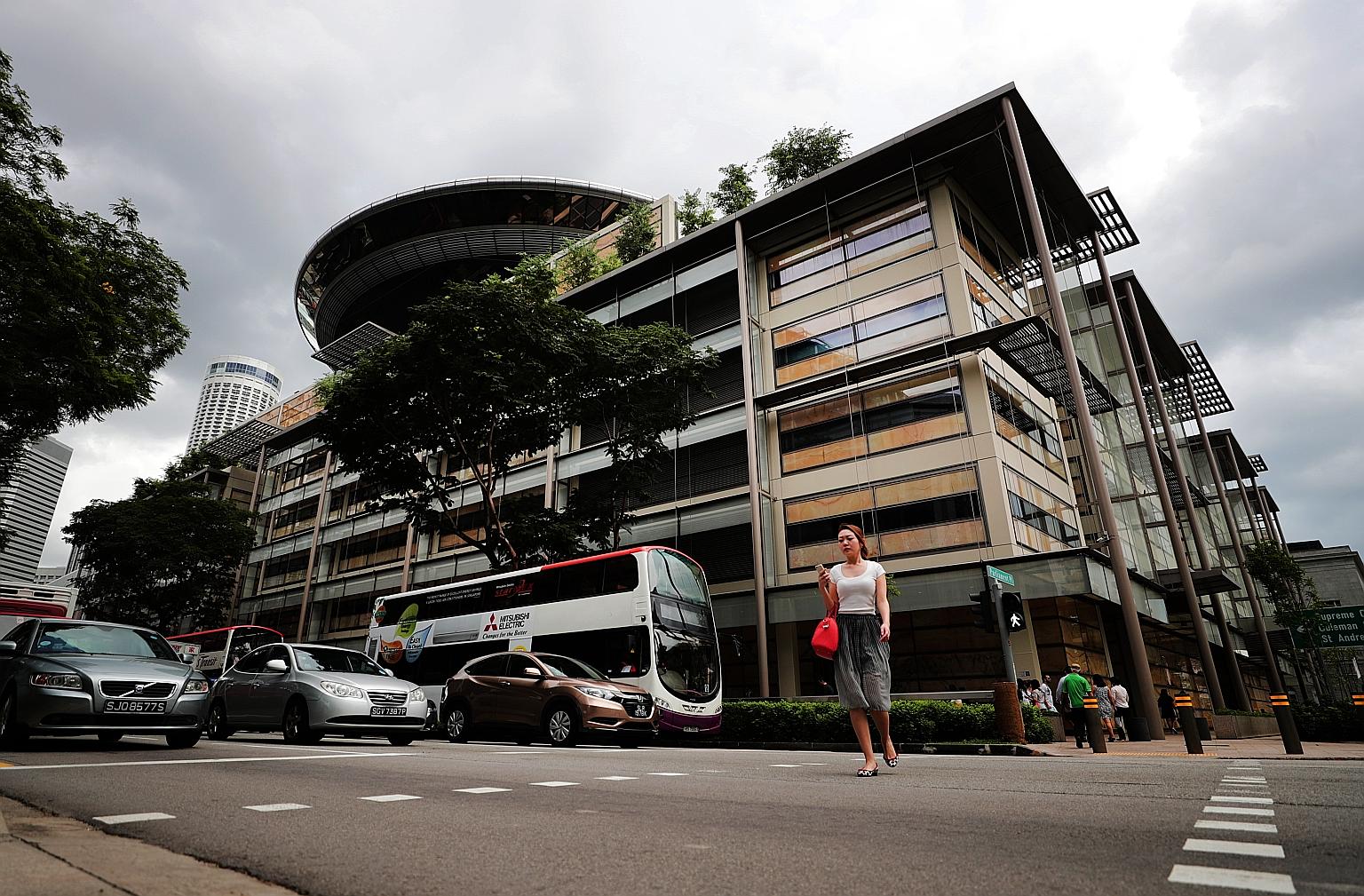Courts may not be able to deal with fake news swiftly: Shanmugam
Shanmugam lays out why ministers are needed in order to act in 'a matter of hours'
Sign up now: Get ST's newsletters delivered to your inbox

All nine Workers' Party MPs who spoke had asked for the courts - not ministers - to be the initial decision-makers on what falsehoods are. In opposing the fake news law, they cited issues such as possible abuses. Their arguments were met with fierce rebuttals from office-holders and People's Action Party backbenchers.
ST FILE PHOTO
It is impossible to guarantee that the courts can decide in "a matter of hours" whether something is a falsehood and how to tackle it, Home Affairs and Law Minister K. Shanmugam said in Parliament yesterday.
Replying to Workers' Party chief Pritam Singh, Mr Shanmugam referred to one of the principles set out by a parliamentary Select Committee last year, which stated that the measures need to be taken in a matter of hours to achieve the aim of stopping falsehoods from going viral.
On Tuesday, Mr Singh had argued that since the courts could grant protection orders to individuals and companies swiftly under the new Protection from Harassment Act (Poha), they could similarly issue orders just as quickly for fake news.
But Mr Shanmugam, in a 10-minute back-and-forth exchange with Mr Singh, said the opposition party's proposal is not feasible.
Firstly, it is hard to determine if those applying to take down or correct a possible falsehood can quickly get an audience with a judge, the minister pointed out.
"Do you know how long it takes to get a duty judge?... Sometimes you can go to his house and see him but (can the action be taken) in a matter of hours? What if he is engaged in something else? He can only give you the time that he can," he said in rebutting Mr Singh, a lawyer.
Another reason he gave is the parties whose possible falsehoods are being corrected or removed may contest the judge's decision. "Due process means you must allow them to argue. That means you must set a hearing date. How long do you think that will take?"
All nine WP MPs who spoke had asked for the courts - not ministers - to be the initial decision-makers on what falsehoods are. In opposing the fake news legislation, they cited possible abuses and the curtailment of freedom of speech. Their arguments were met with fierce rebuttals from office-holders as well as People's Action Party backbenchers.
In his closing speech, Mr Shanmugam also rejected Mr Singh and Mr Low Thia Khiang's (Aljunied GRC) point that few people would go to court to challenge a minister's decision on falsehoods. The minister said orders are likely to be made against tech companies, which can easily challenge decisions.
He also said the WP's point was a logical fallacy: "People don't want to go to court, but what you are proposing is to go to court in every case, which means the Government has to sue every single time... How does that make sense?"
The minister added that the WP MPs had failed to address the fact that the Bill narrowed the scope of powers, by requiring the Government to prove two bars: that something is a falsehood and correcting or taking it down is in the public interest.
Earlier, Mr Cedric Foo (Pioneer) asked Mr Singh if he thought the courts would be able to make decisions about falsehoods much quicker than the executive branch, "which is supported by 16 ministries, 135,000 officers with years of experience in different domains".
Mr Singh reiterated his belief that a swift response from the courts is possible, as seen in the new Poha.
Mr Foo noted: "(The fake news law) is about public interest, about riots... about racial disharmony. These are huge public interest matters that have to be dealt with much faster than Poha cases because those are of an individual's interest.
"They are important, but not as urgent as in cases under Pofma."
Mr Murali Pillai (Bukit Batok) said if a minister issued a directive to further his political aims, it would not fulfil the public interest requirement.
In his speech, Minister for Communications and Information S. Iswaran said he did not see how the WP could "jump to the conclusion that ministers are judge and jury".
The courts, not the ministers, decide on the penalties if propagators of falsehoods are taken to task, he pointed out.
As for the WP's concerns that the new law would stop free speech, he said: "The right to comment, and the right to free speech continues in the course of this process until and unless it is sub judice.
"In other words, the individual and other interested parties can continue to put up online commentaries to say that 'I am the subject of Pofma action'."
He added: "Given the safeguards in the due process... I don't see how this can be seen as ministers having excessive powers."
Mr Iswaran also took issue with Mr Png Eng Huat's (Hougang) concern that the laws would give an incumbent party the power to remove any damaging statement made against it.
Mr Png had said: "The nuclear option, if abused, will actually allow the minister to influence the outcome of an election... Who can vouch that an incumbent party, when faced with multiple battles on all fronts, will not resort to desperate measures to avoid losing power in a critical election?"
Mr Iswaran responded: "I don't know whether he has read Section 52 of the Act (which) provides for alternative authorities during the election period."
In this case, he pointed out, it would be the permanent secretary or an equivalent senior official who would exercise the authority during an election period.
SEE FORUM


